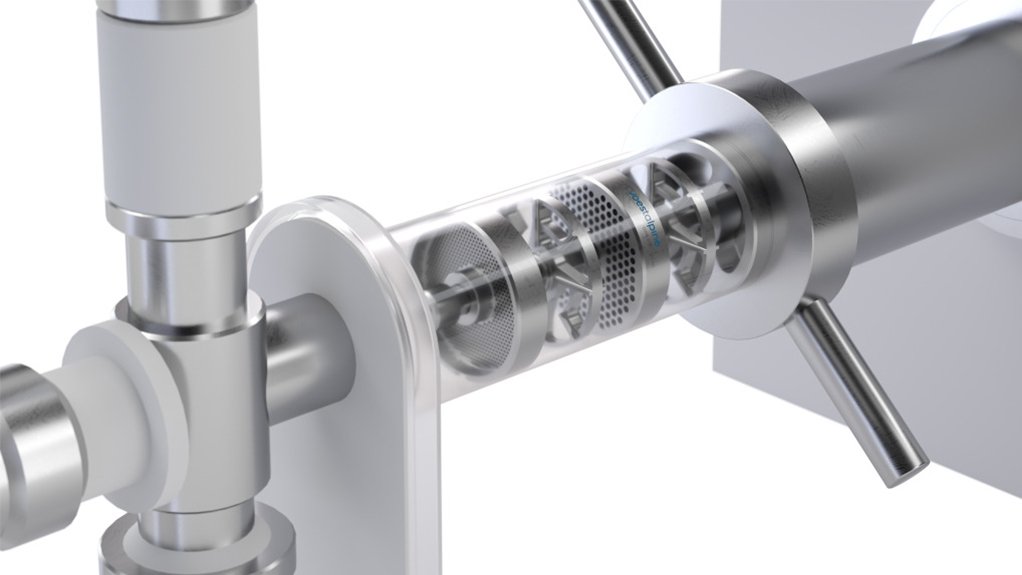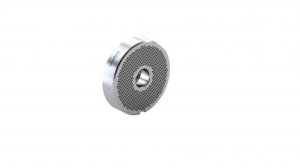Food safety hygiene, equipment efficiency, plant modernisation, sustainability and upgrades to reduce downtime are the key focus areas for the food and beverage industry, following increased local demand, says steel supplier Voestalpine High-Performance Metals (HPM) Africa marketing officer Sherilee Steenkamp.
Consequently, the company is launching a range of ready-to-use engineered tools in South Africa, such as high- performance metals meat grinding technology, film cutting knives, poultry processing technology and bowl cutter knives to help optimise productivity, reduce total cost of ownership and minimise carbon dioxide emissions.
The tools are produced using additive manufacturing, or three-dimensional printing, and conventional manufacturing at the company’s production sites in Hagfors and Kapfenberg, in Sweden, as well as in Mürzzuschlag, in Austria.
The products are made from materials produced by steel tool specialists BÖHLER-Uddeholm, after which they undergo heat treatment, physical vapour deposition (PVD) coating, and texturing, designed to enhance the tools’ performance and output production, she adds.
Steenkamp notes that, based on prior research, the company sees sizeable potential in the market for the food industry with the processed poultry sector, for example, being the largest segment in the processed meat industry, accounting for about 40% of the market and poised for further growth. This presents an opportunity for steel companies which provide solutions for processing and packaging equipment for the sector.
Further, trends abroad demonstrate new requirements for the processing and handling of plant-based proteins, meat substitutes or other alternative protein sources becoming more prevalent as vegan food consumption continues to grow. Efforts to reduce human intervention are also increasing with the aid of automation.
Voestalpine HPM Africa is well positioned to capitalise on the opportunities presented by these trends, as the company “sets new standards for production quality and process reproducibility”, she says.
“We use resources responsibly and we are constantly implementing new measures for environment-friendly processes and production. Sustainable production processes and the use of the best possible environment-friendly technologies have been an essential part of our environmental philosophy for decades.”
Steenkamp adds that Voestalpine HPM Africa’s technologies are available for most machine types and brands for numerous applications, and that many global food-industry partners have confirmed significantly improved performance and profitability owing to use of its products.
The company’s products are tested and analysed at “state-of-the-art” laboratories, providing important data and product parameters for process control and product certification, in accordance with international standards and customer specifications, she notes.
Further, the company collaborates with accredited external laboratories for food industry tests, as there are various national regulations regarding food contact materials to evaluate food safety.
“Our high-performance steels, namely the metals and alloys used in food contact material, have been tested and certified by food safety regulatory bodies Austrian Agency for Health & Food Safety, and the Swedish Food packaging code Normpack, in accordance with Council of Europe stipulations. These materials are listed as acceptable according to limits for metal migration, alongside the testing parameters and food simulant media.”
Steenkamp explains that the Voestalpine HPM Austria board decided to enter the industry by forming a separate food and beverage segment in 2019, developing “next-generation, ready-to-build” tools for food processing, and providing materials and services.
However, the company had been active in the industry for decades prior to establishing the segment, as it provided services, such as high-quality heat treatment and PVD coating, for the food industry for over 63 years.
The technology developed by the food and beverage segment offers significantly reduced total cost of ownership, higher machine availability and efficiency, extended part life, prolonged regrinding cycles, less product contamination and reduced energy consumption, depending on the product.
Steenkamp adds that, when using Voestalpine HPM Africa products, “customers can expect extreme wear resistance, less maintenance during regrinding, improved processing properties, improved cutting results and ductility”.
She points out, however, that during various processing stages, equipment blades must sometimes be removed for daily sharpening because when equipment breaks or needs to be repaired, the time taken to sharpen blades can result in more downtime, consequently affecting profitability, owing to lost production, as well as the equipment not being able to meet demands in terms of quality or reliability.
Food processing companies face many challenges – such as the ever-increasing need for sustainability and growing populations, quality inspection, and longer shelf life – making overall production efficiency essential to companies’ mitigating these challenges.
Edited by: Nadine James
Features Deputy Editor
EMAIL THIS ARTICLE SAVE THIS ARTICLE
ARTICLE ENQUIRY
To subscribe email subscriptions@creamermedia.co.za or click here
To advertise email advertising@creamermedia.co.za or click here

















